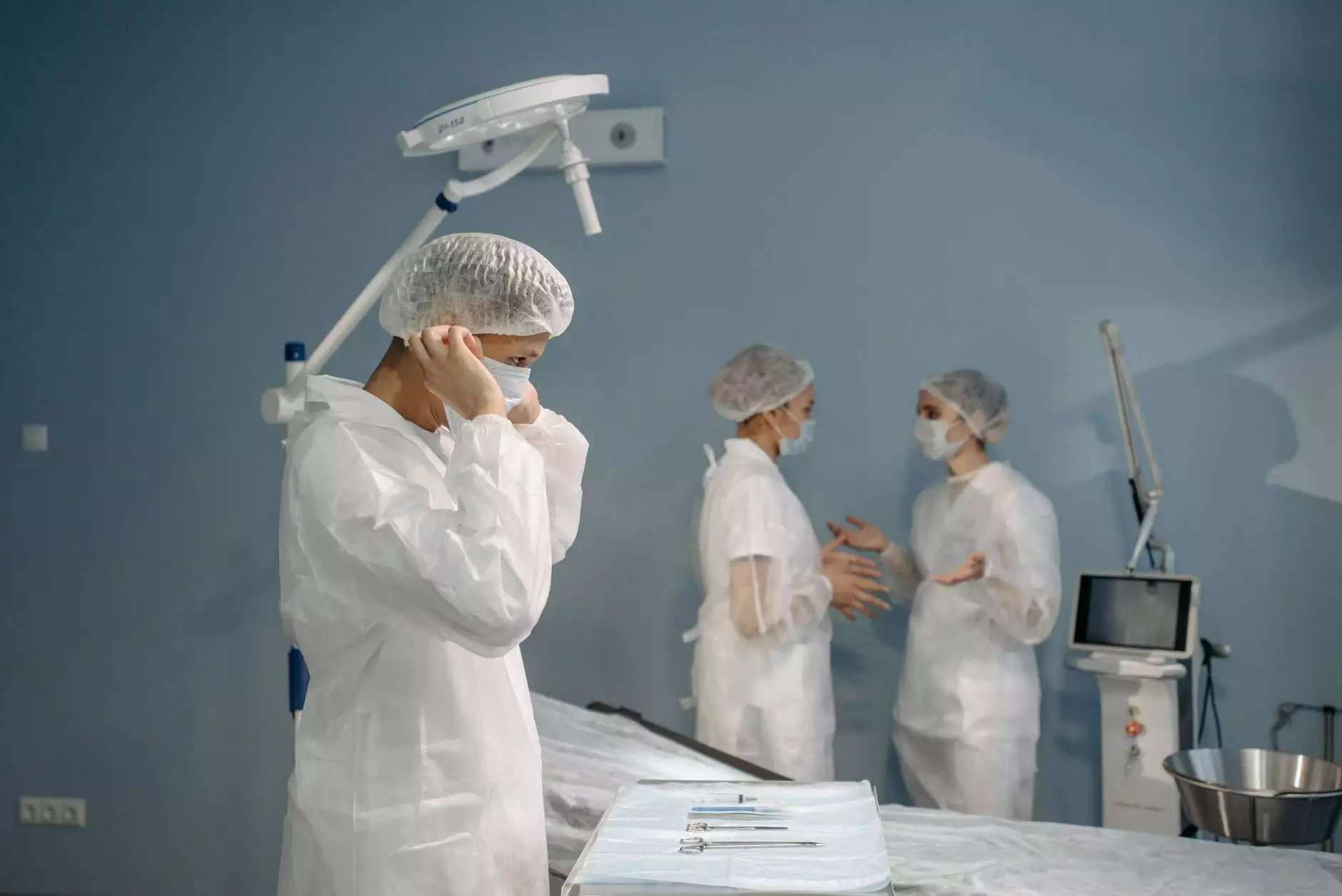Understanding the Importance of a Plastic Surgery Kit

In today’s evolving health and medical landscape, innovation and precision are paramount, particularly in the realm of plastic surgery. One of the cornerstones of successful procedures lies in the effectiveness of the plastic surgery kit. This article delves into the various components, advantages, and relevance of plastic surgery kits in the industry.
What is a Plastic Surgery Kit?
A plastic surgery kit is a comprehensive collection of tools and instruments specifically designed for cosmetic and reconstructive surgeries. These kits are meticulously assembled to ensure that surgeons have access to all the necessary tools required for performing various surgical procedures safely and effectively. The components of these kits can vary depending on the specific type of surgery being performed, but they fundamentally aim to streamline the surgical process.
Key Components of a Plastic Surgery Kit
Typically, a well-rounded plastic surgery kit contains a wide array of surgical instruments and supplies, which may include:
- Scalpels: Precision cutting instruments that allow for accurate incisions.
- Scissors: Specialized scissors for cutting tissue and sutures.
- Forceps: Gripping tools used to hold and manipulate tissues.
- Needle Holders: Instruments designed to securely hold needles while suturing.
- Suction Devices: Tools that remove fluids and blood from the surgical area, ensuring the site is visible and clean.
- Retractors: Instruments that hold back tissues, providing better access to the surgical site.
- Electrocautery Devices: Tools that use heat to cut tissue while minimizing bleeding.
- Jaw Expansion Tools: Used during facial surgeries to expand the jaw effectively.
The Significance of Plastic Surgery Kits in Medical Procedures
The existence of well-structured plastic surgery kits is pivotal for several reasons:
1. Enhanced Efficiency
Kits are designed to contain all tools in a single package, reducing the time surgeons spend searching for instruments. This efficiency is crucial during surgical operations, where every second counts.
2. Improved Patient Safety
Having the appropriate tools readily available minimizes the risk of complications arising from the unavailability of necessary surgical instruments, thus prioritizing patient safety.
3. Standardization of Procedures
By employing a standardized kit for specific procedures, surgical teams can ensure the consistency of care provided across various patients. This helps in maintaining high surgical standards.
4. Facilitation of Training and Education
Plastic surgery kits also play an essential role in the health markets, particularly in training new surgeons. Aspiring surgeons can practice techniques using similar tools found in actual procedures, promoting a better learning environment.
Choosing the Right Plastic Surgery Kit
When selecting a plastic surgery kit, it's vital to consider certain factors that can greatly influence surgical outcomes:
1. Quality of Instruments
Opt for kits made from high-quality materials that ensure durability and precision. Stainless steel is often preferred due to its resistance to corrosion and ability to maintain sharpness.
2. Customization Options
Different procedures require different tools. Choose kits that can be customized to include instruments specific to the surgeries you perform most frequently.
3. Manufacturer Reputation
Always consider purchasing from reputable manufacturers known within the medical supplies sector. Quality and safety standards should be uncompromising to ensure the best surgical outcomes.
The Future of Plastic Surgery Kits
As technology advances, the future of plastic surgery kits is also evolving. Innovations such as robotic-assisted surgery may change how these kits are designed and utilized. Anticipated developments include:
- Smart Instruments: Integration of sensors and technology that provide feedback during procedures, enhancing accuracy and safety.
- 3D Printing: Customizable instruments made through additive manufacturing could alter how kits are assembled for specific surgeries.
- Eco-Friendly Materials: Increasing emphasis on sustainability may result in the development of instruments made from biodegradable materials.
Conclusion
In summary, the plastic surgery kit is an essential asset in the field of surgery, providing numerous benefits that enhance the efficacy and safety of surgical procedures. As the industry continues to grow, so too will the technology and options available within these kits. Surgeons must stay informed about the latest trends and advancements to ensure they are utilizing the best tools available, contributing to overall patient satisfaction and successful surgery outcomes.
For more information or inquiries regarding high-quality plastic surgery kits, visit new-medinstruments.com.









